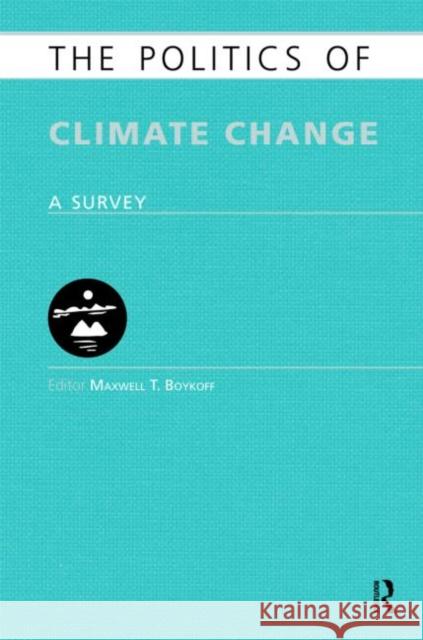The Politics of Climate Change: A Survey » książka
The Politics of Climate Change: A Survey
ISBN-13: 9781857434965 / Angielski / Twarda / 2009 / 328 str.
The Politics of Climate Change: A Survey
ISBN-13: 9781857434965 / Angielski / Twarda / 2009 / 328 str.
(netto: 979,55 VAT: 5%)
Najniższa cena z 30 dni: 1013,86
ok. 22 dni roboczych.
Darmowa dostawa!
Climate change is a defining issue in contemporary life. Since the Industrial Revolution, heavy reliance on carbon-based sources for energy in industry and society has contributed to substantial changes in the climate, indicated by increases in temperature and sea level rise. In the last three decades, concerns regarding human contributions to climate change have moved from obscure scientific inquiries to the fore of science, politics, policy and practices at many levels. From local adaptation strategies to international treaty negotiation, the politics of climate change is as pervasive, vital and contested as it has ever been. On the cusp of a new commitment to international co-operation to rein in greenhouse gas emissions, this essential book intervenes to help understand and engage with the dynamic and compelling Politics of Climate Change . This edited collection draws on a vast array of experience, expertise and perspectives, with authors with backgrounds in climate science, geography, environmental studies, biology, sociology, political science, psychology and philosophy. This reflects the contemporary conditions where the politics of climate change permeates and penetrates all facets of our shared lives and livelihoods. Chapters include the Politics of Climate Science, History of Climate Policy, the Cultural Politics of Climate Change: Interactions in the Spaces of Everyday, the Politics of Interstate Climate Negotiations, the Politics of the Carbon Economy, and Addressing Inequality. An A Z glossary of key terms offers additional information in dictionary format, with entries on topics including Carbon tax, Stabilization, Renewable technologies and the World Meteorological Organization. A section of Maps offers a visual overview of the effects of environmental change."
Climate change is a defining issue in contemporary life. Since the Industrial Revolution, heavy reliance on carbon-based sources for energy in industry and society has contributed to substantial changes in the climate, indicated by increases in temperature and sea level rise. This particular period of time has been referred to as the ‘Anthropocene Era’, or the ‘Age of the Hydrocarbon Human’.
In the last three decades, concerns regarding human contributions to climate change have moved from obscure scientific inquiries to the fore of science, politics, policy and practices at many levels. From local adaptation strategies to international treaty negotiation, ‘the politics of climate change’ is as pervasive, vital and contested as it has ever been.
On the cusp of a new commitment to international cooperation to rein in greenhouse gas emissions (to be decided on at the UN Climate Conference in Copenhagen, Denmark in 2009), this essential book intervenes to help understand and engage with the dynamic and compelling ‘Politics of Climate Change’.
This edited collection draws on a vast array of experience, expertise and perspectives, with authors with backgrounds in climate science, geography, environmental studies, biology, sociology, political science, psychology and philosophy. This reflects the contemporary conditions where the politics of climate change permeates and penetrates all facets of our shared lives and livelihoods.
Chapters include the Politics of Climate Science, History of Climate Policy: from the World Climate Conference (1979) to the UN Climate Conference in Copenhagen (2009), the Contemporary Climate Science-Policy Interface, Spatial Politics of Climate Change: Global North-South Responsibility, Equity and Justice, the Politics of Public Understanding and Engagement, and the Cultural Politics of Climate Change: Interactions in the Spaces of Everyday (mass media, celebrities, NGOs and social movements, contrarians, sport, the arts)
An A – Z glossary of key terms offers additional information in dictionary format, with entries on topics including Carbon tax, Stabilization, Renewable technologies and the World Meteorological Organization.
A section of Maps will offer a visual overview of the effects of environmental change.











